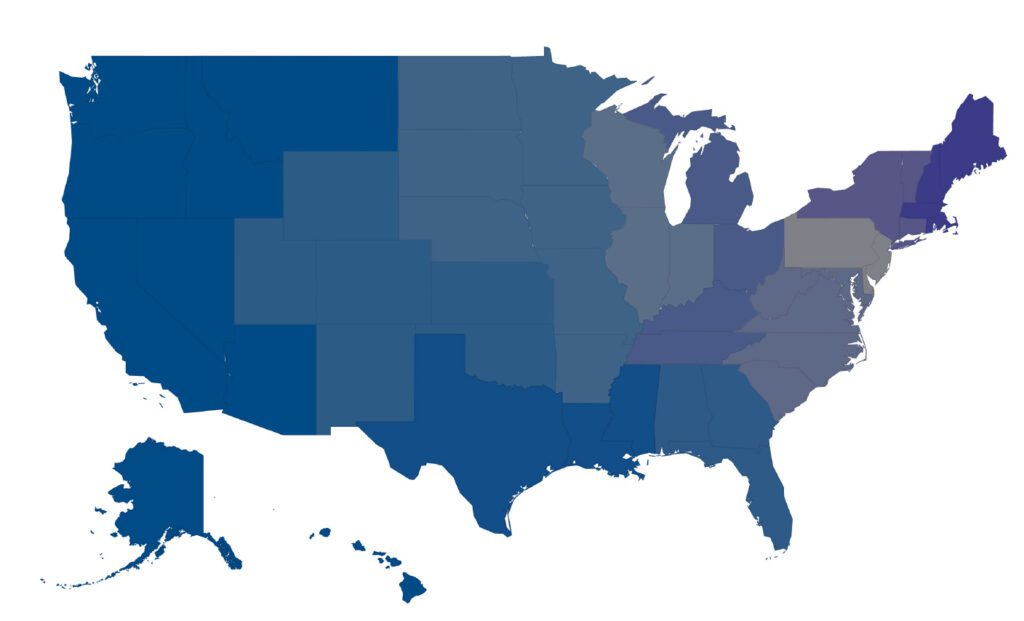Illinois
Illinois Civil Appeals Rule 305 (a) – Stay of Enforcement of Money Judgments
“(a) Stay of Enforcement of Money Judgments. The enforcement of a judgment for money only, or any portion of a judgment which is for money, shall be stayed if a timely notice of appeal is filed and an appeal bond or other form of security, including, but not limited to, letters of credit, escrow agreements, and certificates of deposit, is presented to, approved by and filed with the court within the time for filing the notice of appeal or within any extension of time granted under paragraph (c) of this rule. Notice of the presentment of the bond or other form of security shall be given by the judgment debtor to all parties. The bond or other form of security ordinarily shall be in an amount sufficient to cover the amount of the judgment and costs plus interest reasonably anticipated to accrue during the pendency of the appeal. If a form of security other than an appeal bond is presented, the appellant shall have the burden of demonstrating the adequacy of such other security. If the court, after weighing all the relevant circumstances, including the amount of the judgment, anticipated interest and costs, the availability and cost of a bond or other form of security, the assets of the judgment debtor and of the judgment debtor’s insurers and indemnitors, if any, and any other factors the court may deem relevant, determines that a bond or other form of security in the amount of the judgment plus anticipated interest and costs is not reasonably available to the judgment debtor, the court may approve a bond or other form of security in the maximum amount reasonably available to the judgment debtor. In the event that the court approves a bond or other form of security in an amount less than the amount of the judgment plus anticipated interest and costs, the court shall impose additional conditions on the judgment debtor to prevent dissipation or diversion of the judgment debtor’s assets during the appeal.”
Sec. 2-1306. Supersedeas bonds.
“(a) In civil litigation under any legal theory involving a signatory, a successor to a signatory, or a parent or an affiliate of a signatory to the Master Settlement Agreement described in Section 6z-43 of the State Finance Act, execution of the judgment shall be stayed during the entire course of appellate review upon the posting of a supersedeas bond or other form of security in accordance with applicable laws or court rules, except that the total amount of the supersedeas bond or other form of security that is required of all appellants collectively shall not exceed $250,000,000, regardless of the amount of the judgment, provided that this limitation shall apply only if appellants file at least 30% of the total amount in the form of cash, a letter of credit, a certificate of deposit, or other cash equivalent with the court. The cash or cash equivalent shall be deposited by the clerk of the court in the account of the court, and any interest earned shall be utilized as provided by law.
(b) Notwithstanding subsection (a) of this Section, if an appellee proves by a preponderance of the evidence that an appellant is dissipating assets outside the ordinary course of business to avoid payment of a judgment, a court may require the appellant to post a supersedeas bond in an amount up to the total amount of the judgment.[…]”

**In Federal cases the bond requirement is governed by Federal Rule of Civil Procedure “62(b) Stay by Bond or Other Security. At any time after judgment is entered, a party may obtain a stay by providing a bond or other security. The stay takes effect when the court approves the bond or other security and remains in effect for the time specified in the bond or other security.”**
The information contained on our site is for general information purposes, and you should consult with your attorney for the most up to date civil code or local rule that applies to your case.
Choose the State...
Experience the CSBA Difference today
Expert Guidance • First-Class Service • More Options








